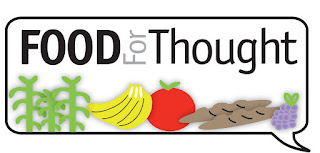People often ask "What do you eat?"

By Guest Blogger Peter
As a vegan for over 12 years (and vegetarian for 3 years before that) people often ask ‘what do you eat?’ as if plants don’t count as food. I answer ‘plants’. I rarely feel that I’m missing out, deprived or get cravings for animal foods. Quite simply there is such an ubiquitous choice of plant foods available from the five following foods groups, namely fruits, vegetables, grains, legumes and nuts & seeds. The previous post below highlights just some of the plant foods available:
http://greg-foodforthought.blogspot.com/2011/02/watermelon.html (scroll down)
If you decide you would like to adopt a plant based diet, embracing it with the attitude of ‘abundance’ rather than ‘deprivation’, you are more likely to be successful. It’s all in the approach. Most people see veganism as a restriction and as such set themselves up to fail.
For those who have no intention of ever becoming vegan your health will still benefit by increasing the amount of whole, fresh plant foods in your diet.
Many people believe that by becoming vegan their health will suffer.
In fact most people who eat the Standard American Diet (SAD) will benefit from either becoming vegan or basing their diet around whole fresh plant foods as this blog has highlighted in many previous posts. That said, any diet can be unhealthy. A vegan diet without a little planning and eating too much processed and junk food can also be unhealthy. Aside from B12 there is no mineral or vitamin that a varied whole food plant can’t provide.
(If you eat food right out of an organic garden, or don't wash some of your store bought organic produce you'll get some B-12. GK)
The average person eats many of the same foods over and over again. The same pattern applies to vegans as well. We all form habits. Consequently once you make the switch and base your eating patterns around the dozen or so dishes that you like, you are half way there. You will get used to them and it will become habit. Furthermore your tastes change and foods that you may have eaten before may not be as appealing.
The bottom line is, explore the options, experiment and use your imagination when preparing plant foods. You don’t have to eat a particular vegetable, fruit, grain, legume etc. just because it’s healthy and you don’t like it. The choices are plentiful. There’s sure to be many plant foods that you like.
The world of plant foods is one of abundance, not deprivation.
-----------------------------------------------------------------------
* Addition from Greg:
From Wikipedia: Vegetarianism encompasses the practice of following a plant-based diet with the inclusion of dairy products (milk, cheese, yogurt, etc.) and eggs, and with the exclusion of meat (red meat, poultry, and seafood).
Few people make the switch from being a meat eater immediately to vegan (no food from animals). As Peter stated , he was a vegetarian for 3 years before he made the change to vegan.
I started out with a semi-vegetarian diet: mainly vegetarian foods, but included fish and poultry, or other meats on an infrequent basis.
Trying to decrease meat from your diet is a big step. Then you may want to take it a step further: decreasing sugar, or salt, or junk foods, etc. Decreasing unhealthy food and drink one at a time works for most.
Any step to improve your diet is a step in the right direction.
How you take care of yourself is your choice. Your health is your most important possession. Once you lose it it will be tough to regain.
Think of your future. Time goes fast. The clock is ticking.
And as Peter stated,
"The world of plant foods is one of abundance, not deprivation."

